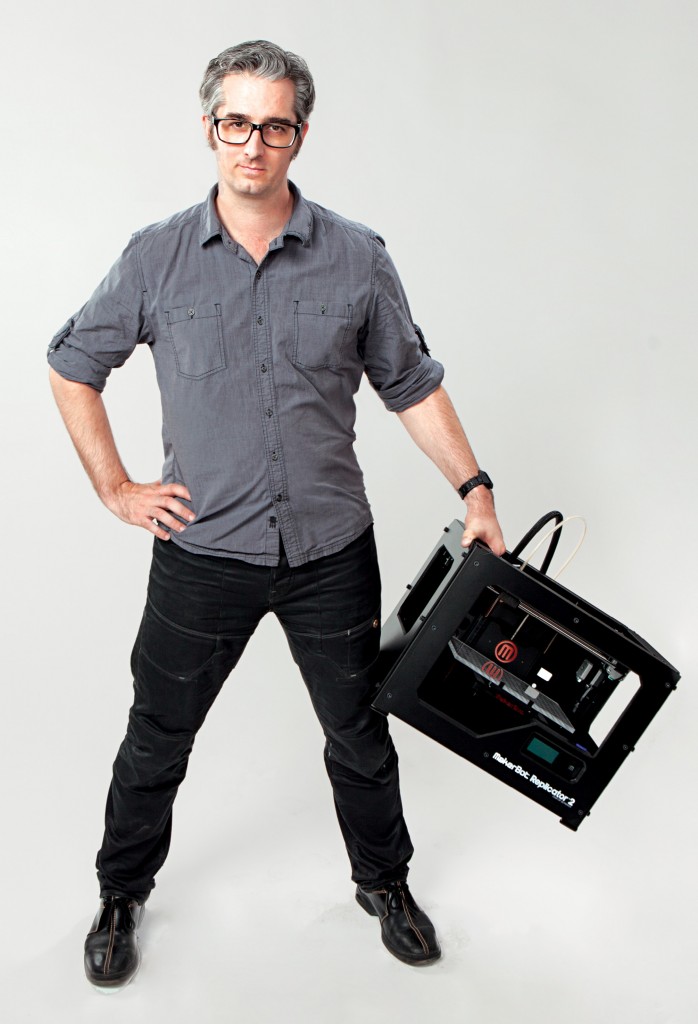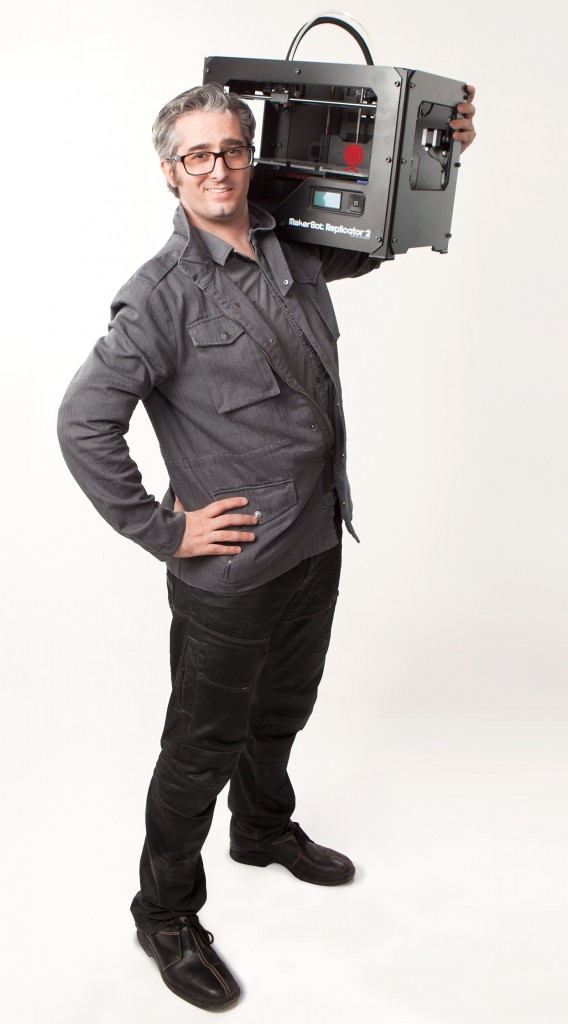Podcast: Play in new window | Download | Embed
Subscribe: RSS
 Bre Pettis is the charismatic founder and CEO of MakerBot – one of the most disruptive companies ushering in a revolution in personal manufacturing. If you ever heard of or want to know more about the latest in 3D printing, you have to know about Bre and MakerBot. And so I knew that I simply had to find a way to get Pettis on my podcast.
Bre Pettis is the charismatic founder and CEO of MakerBot – one of the most disruptive companies ushering in a revolution in personal manufacturing. If you ever heard of or want to know more about the latest in 3D printing, you have to know about Bre and MakerBot. And so I knew that I simply had to find a way to get Pettis on my podcast.
During our 1 hour conversation with Bre, we cover a variety of interesting topics such as his personal journey from being a teacher, puppeteer, and popular podcaster to starting the most disruptive 3D printing company; founding the NYC Resistor hackerspace, and writing The Cult of Done Manifesto; MakerBot and the commitment to firmware and software updates that make your 3D printer better; why specs such as printing resolution are less important than ease of use; his desire to empower people and democratize manufacturing; the pros and cons of open source vs a startup for-profit company; copyright and the Thingiverse; the limits of 3D printing and recycling the world into filament…
My favorite quotes that I will take away from this interview with Bre Pettis are:
If you want it badly enough – go out and make it!
and
Take your passion and apply a MakerBot to it!
As always you can listen to or download the audio file above or scroll down and watch the video interview in full. To show your support you can write a review on iTunes, make a direct donation, or become a patron on Patreon.
Who is Bre Pettis?
 Bre Pettis has led MakerBot, a global leader in 3D printing technology, as CEO since its beginning in 2009, but has a long history of making things and inspiring others to make things. Prior to co-founding MakerBot, Pettis co-founded the Brooklyn hacker collective NYC Resistor, where MakerBot technology was first concocted, tested, and proven. He was instrumental in building the first prototypes of MakerBot’s 3D printers, and has become known worldwide as a leading evangelist for personal manufacturing.
Bre Pettis has led MakerBot, a global leader in 3D printing technology, as CEO since its beginning in 2009, but has a long history of making things and inspiring others to make things. Prior to co-founding MakerBot, Pettis co-founded the Brooklyn hacker collective NYC Resistor, where MakerBot technology was first concocted, tested, and proven. He was instrumental in building the first prototypes of MakerBot’s 3D printers, and has become known worldwide as a leading evangelist for personal manufacturing.
In 2006, Bre started the popular “Weekend Projects” video podcast for Make: Magazine, where he taught millions of viewers to make things from pinhole cameras to bicycles to hovercrafts. He also introduced the blog at the popular online handcrafts marketplace, Etsy. Prior to both endeavors, Bre was an art teacher in the Seattle Public Schools system. Today, he serves on the board of Local Motors, a company dedicated to reinventing the automobile through open-source, crowd-powered design.
Bre is passionate about providing the tools for individuals and organizations to create the world around them. He has spoken publicly about empowering students to solve the problems of the future, and worked behind the scenes to bring professional-quality 3D printing technology into the hands of average consumers.
In 2012, Bre was honored with the Disruptive Innovation Award from the Tribeca Film Festival, for “creating an entire ecosystem for desktop 3D printing.” Foreign Policy named him #60 on their list of 2013 Global Thinkers. He has been a highly sought-after speaker and interview subject, gracing the cover of numerous magazines (most recently Wired), and been a guest on The Colbert Report, and many more. MakerBot was featured in the October 2012 edition of Fast Company as a 2012 Innovation by Design awardees, as well as in The New York Times, The Wall Street Journal, the Economist, Engadget, Make: Magazine, Rolling Stone, Time, IEEE Spectrum, CNN, Financial Times, NPR, Vogue Italia, and many others.
Bre lives in Brooklyn with his partner Kio Stark and their daughter, Nika.
Related articles


 Dr. Kaku addresses the question of the possibility of utopia, the perfect society that people have tried to create throughout history.
Dr. Kaku addresses the question of the possibility of utopia, the perfect society that people have tried to create throughout history.